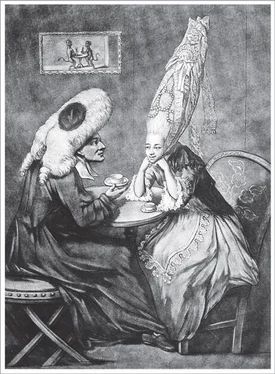Bill Bryson - At Home
Здесь есть возможность читать онлайн «Bill Bryson - At Home» весь текст электронной книги совершенно бесплатно (целиком полную версию без сокращений). В некоторых случаях можно слушать аудио, скачать через торрент в формате fb2 и присутствует краткое содержание. Жанр: Старинная литература, на английском языке. Описание произведения, (предисловие) а так же отзывы посетителей доступны на портале библиотеки ЛибКат.
- Название:At Home
- Автор:
- Жанр:
- Год:неизвестен
- ISBN:нет данных
- Рейтинг книги:4 / 5. Голосов: 1
-
Избранное:Добавить в избранное
- Отзывы:
-
Ваша оценка:
- 80
- 1
- 2
- 3
- 4
- 5
At Home: краткое содержание, описание и аннотация
Предлагаем к чтению аннотацию, описание, краткое содержание или предисловие (зависит от того, что написал сам автор книги «At Home»). Если вы не нашли необходимую информацию о книге — напишите в комментариях, мы постараемся отыскать её.
At Home — читать онлайн бесплатно полную книгу (весь текст) целиком
Ниже представлен текст книги, разбитый по страницам. Система сохранения места последней прочитанной страницы, позволяет с удобством читать онлайн бесплатно книгу «At Home», без необходимости каждый раз заново искать на чём Вы остановились. Поставьте закладку, и сможете в любой момент перейти на страницу, на которой закончили чтение.
Интервал:
Закладка:
Some of the workroom names are not quite as straightforward as they might seem. Buttery has nothing to do with butter. It refers to butts , as in butts of ale. (It is a corruption of boutellerie , the same word from which butler and bottle are derived; looking after the wine bottles is what butlers originally did.) Curiously, the one service room not named for the products it contains is dairy . The name derives from an Old French word, dey , meaning maiden. A dairy, in other words, was the room where the milkmaids were to be found, from which we might reasonably deduce that an Old Frenchman was more interested in finding the maid than the milk.
In all but the most modest households owners rarely set foot in the kitchen or servants’ area and, as Gardiner puts it, “knew only by report the conditions in which their servants lived.” It was not uncommon for the head of the household to know nothing about his servants beyond their names. Most would have had little idea how to find their way through the darker recesses of the servants’ areas.
Every aspect of life was rigorously stratified, and these anxious distinctions existed for houseguests and family as much as for servants. Strict protocol dictated into which parts of the house one might venture—which corridors and staircases one might use, which doors one might open—depending on whether one was a guest or close relative, governess or tutor, child or adult, aristocrat or commoner, male or female, upper house servant or lower house servant. Such were the rigidities, Mark Girouard observes in Life in the English Country House , that afternoon tea in one stately home was served in eleven different places to eleven different castes of people. In her history of country house servants, Pamela Sambrook notes how two sisters worked in the same house—one as a housemaid, one as a nursemaid—but were not allowed to speak or indicate acquaintance when they met because they inhabited different social realms.
Servants were given little time for personal grooming, and then were constantly accused of being dirty, which was decidedly unfair since a typical servant’s day ran from 6:30 in the morning to 10:00 at night—later if an evening social event was involved. The author of one household manual noted wistfully how she would have loved to provide her servants with nice rooms, but sadly they always grew untidy. “The simpler, therefore, a servant’s room is furnished, the better,” she decided. By the Edwardian period servants got off half a day per week and one full day per month—hardly munificent when you consider that that was all the time they had to shop for personal items, get their hair cut, visit family, court, relax, or otherwise enjoy a few hours of precious liberty.
Perhaps the hardest part of the job was simply being attached to and dependent on people who didn’t think much of you. Virginia Woolf’s diaries are almost obsessively preoccupied with her servants and the challenge of maintaining patience with them. Of one, she writes: “She is in a state of nature: untrained; uneducated … so that one sees a human mind wriggling undressed.” As a class they were as irritating as “kitchen flies.” Woolf’s contemporary Edna St. Vincent Millay was rather more blunt: “The only people I really hate are servants. They are not really human beings at all.”
It was unquestionably a strange world. Servants constituted a class of humans whose existences were fundamentally devoted to making certain that another class of humans would find everything they desired within arm’s reach more or less the moment it occurred to them to desire it. The recipients of this attention became spoiled almost beyond imagining. Visiting his daughter in the 1920s, in a house too small to keep his servants with him, the tenth Duke of Marlborough emerged from the bathroom in a state of helpless bewilderment because his toothbrush wasn’t foaming properly. It turned out that his valet had always put the toothpaste on the brush for him, and the Duke was unaware that toothbrushes didn’t recharge automatically.
The servants’ payoff for all this was often to be treated appallingly. It was common for mistresses to test the honesty of servants by leaving some temptation where they were bound to find it—a coin on the floor, say—and then punishing them if they pocketed it. The effect was to instill in servants a slightly paranoid sense that they were in the presence of a superior omniscience. Servants were also suspected of abetting burglars by providing inside information and leaving doors unlocked. It was a perfect recipe for unhappiness on both sides. Servants, especially in smaller households, tended to think of their masters as unreasonable and demanding. Masters saw servants as slothful and untrustworthy.
Casual humiliation was a regular feature of life in service. Servants were sometimes required to adopt a new name, so that the second footman in a household would always be called “Johnson,” say, thus sparing the family the tedium of having to learn a new name each time a footman retired or fell under the wheels of a carriage. Butlers were an especially delicate issue. They were expected to have the bearing and comportment of a gentleman, and to dress accordingly, but often the butler was required to engage in some intentional sartorial gaucherie—wearing trousers that didn’t match his jacket, for instance—to ensure that his inferiority was instantly manifest.*
One handbook actually gave instructions—in fact, provided a working script—for how to humiliate a servant in front of a child, for the good of both child and servant. In this model scenario, the child is summoned to the study, where he finds his mother standing with the shamed servant, who is weeping quietly.
“Nurse Mary,” the mother begins, “is going to tell you that there are no black men who creep into little boys’ rooms in the dark and carry them off when they are naughty. I want you to listen while Nurse Mary tells you this, for she is going away to-day, and you will probably never see her again.”
The nurse is then confronted with each of her foolish tales and made to recant them one by one.
The boy listens carefully, then offers his hand to the departing employee. “Thank you, nurse,” he says crisply. “I ought not to have been afraid, but I believed you, you know.” Then he turns to his mother. “I shall not be afraid, now, Mother,” he reassures her in an appropriately manly fashion, and all return to their normal lives—except of course the nurse, who will probably never find respectable work again.
Dismissal, especially for females, was the most dreaded calamity, for it meant loss of employment, loss of shelter, loss of prospects, loss of everything. Mrs. Beeton was at particular pains to warn her readers not to allow sentiment or Christian charity or any other consideration of compassion to lead them to write a false or misleading recommendation for a dismissed employee. “In giving a character, it is scarcely necessary to say that the mistress should be guided by a sense of strict justice. It is not fair for one lady to recommend to another a servant she would not keep herself,” Mrs. Beeton wrote, and that was all the reflection anyone needed to give to the matter.
As the Victorian era progressed, servants increasingly were required to be not just honest, clean, hardworking, sober, dutiful, and circumspect but also, as near as possible, invisible. Jenny Uglow, in her history of gardening, mentions one estate where, when the family was in residence, the gardeners were required to detour a mile when emptying their wheelbarrows in order not to become an irksome presence in the owner’s field of view. At one home in Suffolk, meanwhile, servants were required to press their faces to the wall when members of the family passed by.
Читать дальшеИнтервал:
Закладка:
Похожие книги на «At Home»
Представляем Вашему вниманию похожие книги на «At Home» списком для выбора. Мы отобрали схожую по названию и смыслу литературу в надежде предоставить читателям больше вариантов отыскать новые, интересные, ещё непрочитанные произведения.
Обсуждение, отзывы о книге «At Home» и просто собственные мнения читателей. Оставьте ваши комментарии, напишите, что Вы думаете о произведении, его смысле или главных героях. Укажите что конкретно понравилось, а что нет, и почему Вы так считаете.












